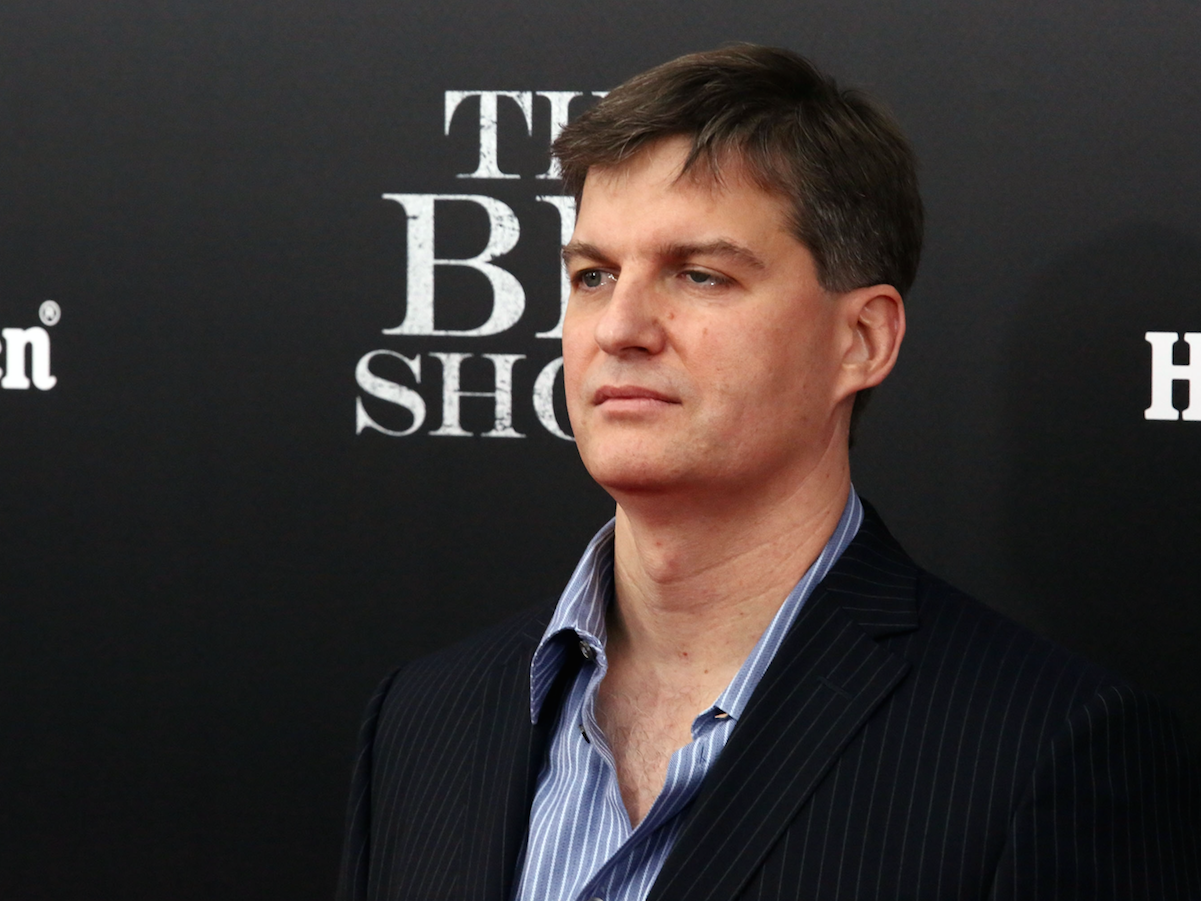- Michael Burry, the investor made famous by “The Big Short,” told Bloomberg Wednesday that he sees a bubble in passive investing.
- Many other money managers have called out the investment strategy, which they say isn’t the best course of action for investors in the current market environment.
- Read more on Markets Insider.
Michael Burry, the investor that famously shorted mortgage securities before the 2008 housing crisis, told Bloomberg on Wednesday that he sees a “bubble” in passive investing.
That bubble is ignoring small-cap stocks, said Burry, who was a key figure in Michael Lewis’ bestselling book “The Big Short” and was played by Christian Bale in the movie with the same name. The problem is happening because the pillars of passive investing – exchange-traded funds and index-based assets- mostly focus on bigger companies. This puts downward pressure on the stocks of smaller companies and has effectively “orphaned smaller value-type securities globally,” he wrote to Bloomberg in an email.
Burry isn’t the only investor calling out passive investing. Over the last few years, as passive investing has grown in size and popularity, many investors have called out flaws in the approach, which minimizes buying and selling to protect investors from dips in performance that can come with frequent trading.
In today’s current market environment, where a number of recession indicators are flashing and investors are becoming increasingly nervous, money managers have also argued that passive strategies can set up investors for major losses if an unexpected market downturn occurs.
Active managers should be positioning client portfolios for a downturn or recession, Bill Adams, the chief investment officer of fixed income for MFS Investment Management, told Markets Insider. "No one's good enough to tell you when the recession comes. But it's starting to look and feel and smell a lot like it's on the horizon."
A passive investor buying passive strategies is just buying the market, Adams said, not necessarily positioning portfolios for a specific outcome.
Here are some other big name investors that have spoken about issues with passive investing.
Carl Icahn

Billionaire investor Carl Icahn told CNBC in 2018 that a selloff in stocks showed issues in passive investing.
"Passive investing is the bubble right now, and that's a great danger," he said.
"You need regulation on this stuff," Icahn said. He highlighted triple-levered ETFs that offer triple the returns of the performance of an underlying index, saying they shouldn't be available for purchase.
"Today you have these triple-leveraged ETFs that are crazy," he said. "You have these index funds with leveraged ETFs against them, where, I don't see any difference between that and 1929."
Jeffrey Gundlach

Jeffrey Gundlach, often called the king of bonds, also sounded the alarm on passive investing amidst a stock selloff in December 2018.
"I wouldn't advise anyone to be a passive investor," Gundlach told CNBC in an interview. "My strongest advice is to not invest in passive US equity funds."
"I think in fact that passive investing and robo-advisors ... are going to exacerbate problems in the market because it's herding behavior," Gundlach said.
Howard Marks

Howard Marks, the cochairman of Oaktree Capital, dedicated an 18-page memo to the topic of index investing, saying that the vast growth of ETFs has coincided with the market rally that began 10 years ago, and that we haven't yet seen how they perform in a downturn.
"Might the inclusion and overweighting in ETFs of market darlings - a source of demand that may have driven up their prices - be a source of stronger-than-average selling pressure on the darlings during a retreat?" he asked.
He added: "We wont know until it happens, but it's not hard to imagine the popularity that fueled the growth of ETFs in good times working to their disadvantage in bad times."
Robert Shiller

Robert Shiller, the Nobel prize-winning economist, told CNBC's trading nation that "all this talk of indexes, it's a little bit diluting of our intellect. It becomes more of a game. It's a chaotic system," in an interview in 2017.
"The problem is that if you are talking about passive indexing, that is something that is really free-riding on other people's work, " Shiller said.
Jack Bogle

Jack Bogle, the late founder and chief executive of The Vanguard Group, was also the father of the index fund - he created the first one to track the returns of the S&P 500 in 1975.
In 2018, he too spoke out about the issues associated with his own invention. In an article in the Wall Street Journal, Bogle said that it's only a matter of time before index funds own half of all US stocks.
"I do not believe such a concentration would serve the national interest," he wrote.

